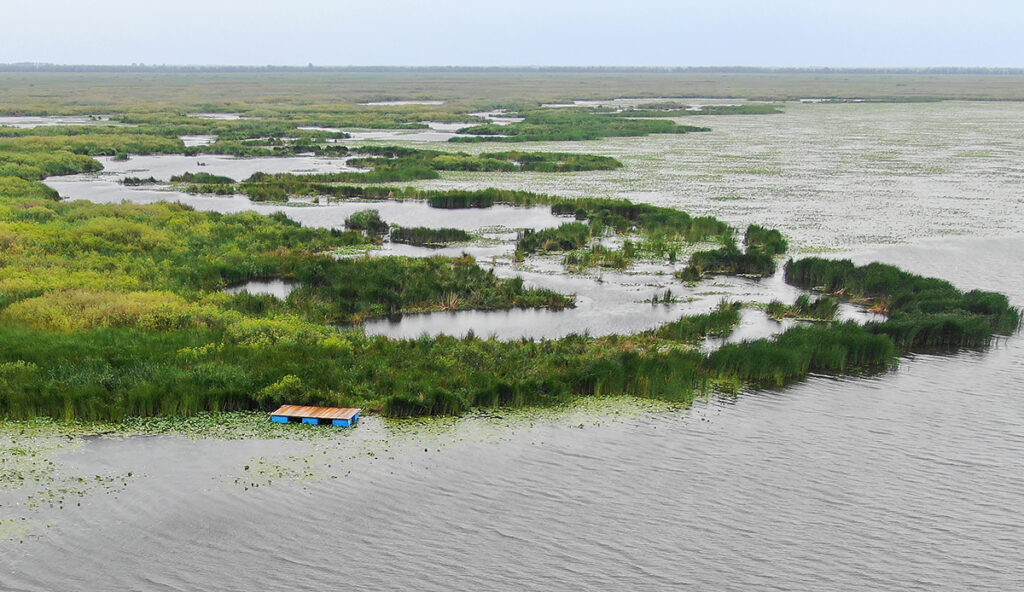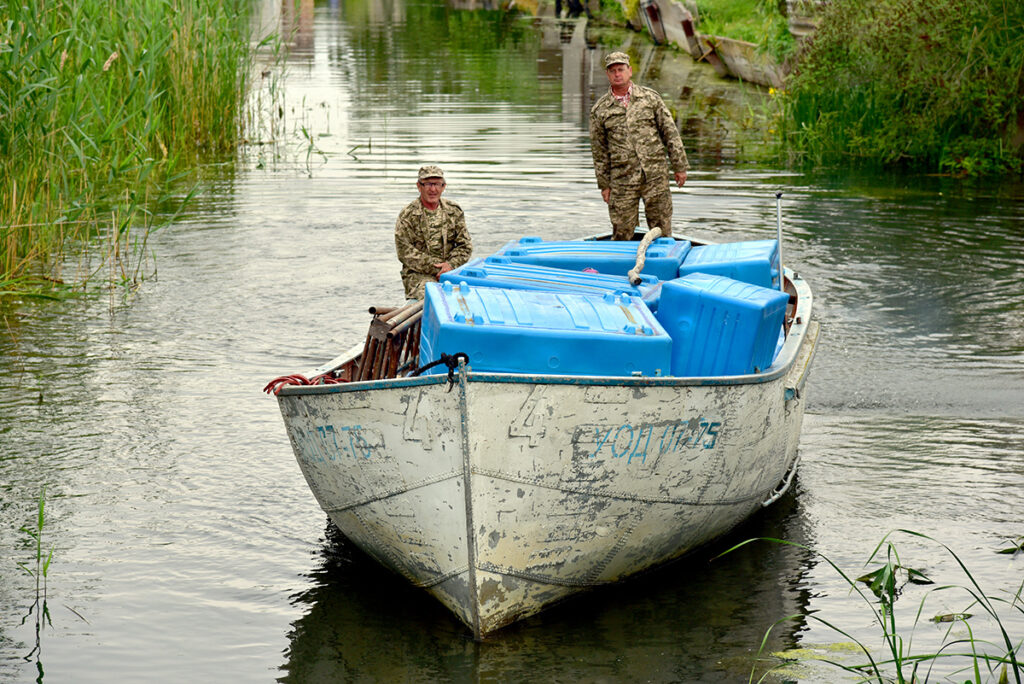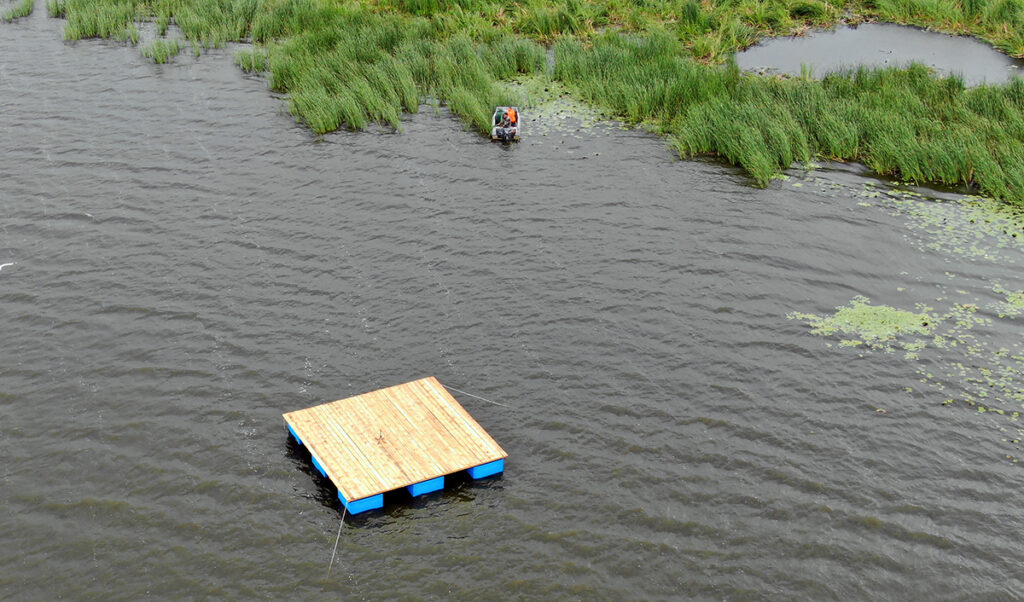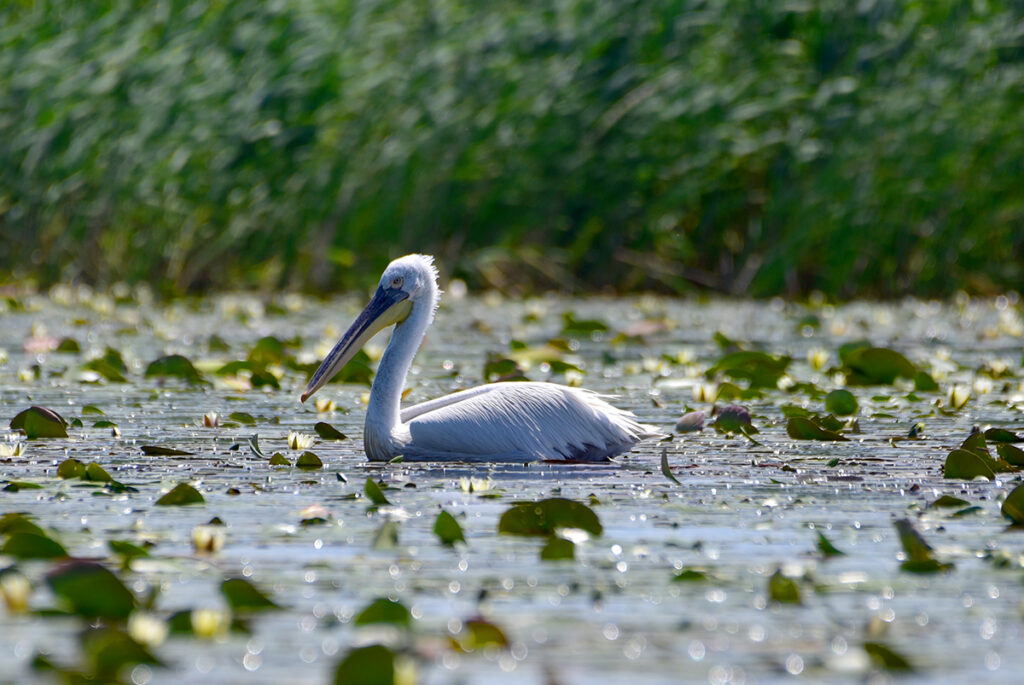In early June, two artificial breeding platforms for Dalmatian pelicans were installed in the Danube Biosphere Reserve in Ukraine as part of the “Pelican Way of LIFE” project.

Installation work of artificial platforms began in the spring. They were assembled from floating blocks that were covered with a wooden deck. Before breeding, the platforms will be covered with reed to give them a more natural look. The platforms were installed in the coastal part of the delta in the Anankin kut of Danube Biosphere Reserve in the most protected area – the zone of strict protection.
Such platforms are an effective tool to foster the establishment of the new breeding colonies of pelicans. The experience of Romania, Bulgaria and other countries shows that pelicans like to build their nests on these artificial islands.

“To build their nests, these birds choose areas of land that provide safety from predators. But in the delta, there are not so many islands suitable for this. That is why such artificial platforms appeal to pelicans. The platforms we have been installed in Anankin kut are quite spacious – about 60 square meters. So, dozens of pelicans can rest and nest on them. This year’s breeding season is over, but we hope that the birds will get used to the platforms and build their nests on them in the coming years,” said Maxim Yakovlev, an ornithologist at the Danube Biosphere Reserve.

Spring censuses of pelicans in spring this year, scored more than 2,000 white pelicans and 83 Dalmatian pelicans in the Ukrainian Danube Delta. White pelicans breed in Romania in one colony in the protected area Roșca-Buhaiova. However, Dalmatian pelicans build their nests in various water bodies from Greece to Ukraine. A few years ago, Ukrainian ornithologists recorded several nests of Dalmatian pelicans on Lake Kugurlui, but a stable nesting colony was not formed.
“We hope that Dalmatian pelicans will roost on our platforms, build their nests here and raise chicks. Both species of pelicans are listed in the Red Book of Ukraine, but the Dalmatian pelican is rarer, and the measures of our “Pelican Way of LIFE” project are aimed at the preservation of its populations. We plan to build more similar platforms on other water bodies in the Danube Delta, as well as install the artificial decoys of pelicans to attract the birds,” adds Mykhailo Nesterenko, Executive director of Rewilding Ukraine.
An iconic species in danger
With a wingspan of almost three meters and weight over 10 kg, the Dalmatian pelican is one of the most impressive breeding birds in Europe. The sight of a group of these massive fish eaters taking to the air is an awe-inspiring avian spectacle.
The Dalmatian pelican is a globally threatened species. Extremely vulnerable across its entire geographical range, it is classified as “Near Threatened” on the IUCN Red List. The global population of the species has suffered a dramatic decline over recent decades, with the principal causes including collisions with power lines, habitat decline, disturbance, direct persecution by fishermen, and a lack of awareness amongst local communities.

The “Pelican Way of LIFE” project (LIFE18 NAT/NL/000716), which helps preserve and restore the Dalmatian pelican population in the Black Sea and Mediterranean, focuses not only on species research and practical conservation measures, but also on raising awareness of this majestic bird, which is an ambassador of healthy rivers and wetlands. Only with the support of the local population and a wide range of parties can the rewilding measures be successful. The project, implemented in Greece, Bulgaria, Romania and Ukraine, is coordinated by Rewilding Europe and funded by the LIFE Programme of the European Union and the Arcadia Foundation. In Ukraine, the project is implemented by Rewilding Ukraine and the Danube Biosphere Reserve.